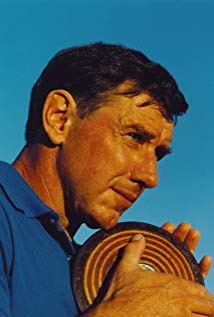Above the fold
I Have Yet Another Story and a Moral Thereof
Michael Phelps was the third ever American athlete to capture gold in four consecutive Summer Olympics in the same event. Carl Lewis became only the second American to do so from 1984 through 1996. He won nine golds in all, but four consecutively came from the long jump. But do you know who the first American was to win and in what event in four consecutive games? If you just said Alfred “Al” Oerter, Jr. and the discus throw, without googling it, go directly to the medal stand to collect yours.
Al Oerter began his Olympic career in the 1956 Summer Olympics in Melbourne. As a not well-known underdog he threw a then career best 185 feet in the discus competition. In 1960 Oerter set an Olympic record of 194 feet for his second gold. In 1964, hampered by neck and rib injuries he skipped his last throw due to the pain but tossed his second one nearly 200 feet, good for gold number three. In 1968, as a 32-year-old big underdog, Oerter came from well behind with a third and final hurl of 212 feet for his fourth and final gold.
His discus career had an almost mythical beginning. While running on his high school track (Oerter began his track and field career as a miler), an errant discus, which weighs four and-a-half pounds, nearly hit him and fell nearby. He tossed it back further than from where it came. He immediately was asked by his coach to switch events.
After the ’68 games he retired to pursue life in the business world.  That world was not suited for him (especially the suit part) and by 1976 eyed a comeback in the sport he so loved. He tried out for the 1980 Olympic team and threw a personal best 228 feet, but failed to qualify finishing fourth. Amazingly, he was a young 43 years old then.
That world was not suited for him (especially the suit part) and by 1976 eyed a comeback in the sport he so loved. He tried out for the 1980 Olympic team and threw a personal best 228 feet, but failed to qualify finishing fourth. Amazingly, he was a young 43 years old then.
He also was suffering from high blood pressure that plagued him throughout his rewarding life.
Almost getting hit by the discus and suffering from high blood pressure were not known to this writer in 2003 when Al addressed a several hundred strong contingent of eager listeners, and told his remarkable story at our sales meeting. His tale was riveting. His passion pure. His intensity extreme. What was known was that a few social beverages consumed by a not to be named coworker and I prior to the speech made us thirsty for more as soon as another presenter stopped droning on post Al’s address. Sitting by the back door of the amphitheater we bolted for the post meeting poolside party bar. Beverages secured, we saw Al ready to mingle with the masses.
“Let’s go talk to him.” “Sure, what to say?” “Come on, we’ll think of something.” Al was sweating profusely in the night air. Blood pressure was the culprit, I suppose, now that I know. After a quick bit of small talk (and a bit more of our refreshments) about how great the speech was and how proud he must be, I decided I had to ask. “Al, you’ve seen the video of that guy running track that accidentally gets skewered by the javelin throw?” “Huh?” “You know, like the thrill of victory, and the agony of defeat?” He nodded affirmatively in silence, but with a furrowed brow.
“Well,” I went on. “Well I was just wondering if you ever hit anyone about the cranium with the discus when you were practicing.” “Are you serious?” He asked with some anger. “Um, yes.” “I traveled all the way to this meeting for you to ask me that?” He seemed to not like my question much at all. “Um, yes.” “NO!”
With that Al turned faster than the whirl of a good discus throw and was off to talk to some other folks that might hold his interest and slow his escalating heartbeat. Who knew? Not I. Well, it was time to head to the bar for another. Maybe you “had to be there,” but at the time it was funny as hell.
Al died four years later in 2007, at a too young 71, of cardiovascular disease. He refused a suggested heart transplant telling doctors that he “was going out with what he came here with.”
Oh. What’s the moral of the story? It probably is important to know your audience before you address them.
He did. I did not.

Comment section
Lefty, maybe you were hit in the head with a discus?!
Actually, Shorty was taller till he was the one who took it on the cranium.
Nothing like a good sales meeting.
Dale Carnegie approves this message.
Well done! Impressive he improved 27 feet from his first gold to his fourth. Seems like a lot of improvement.
Today his distance would be good for a good high school probably. Crazy the march higher….
Related Posts: